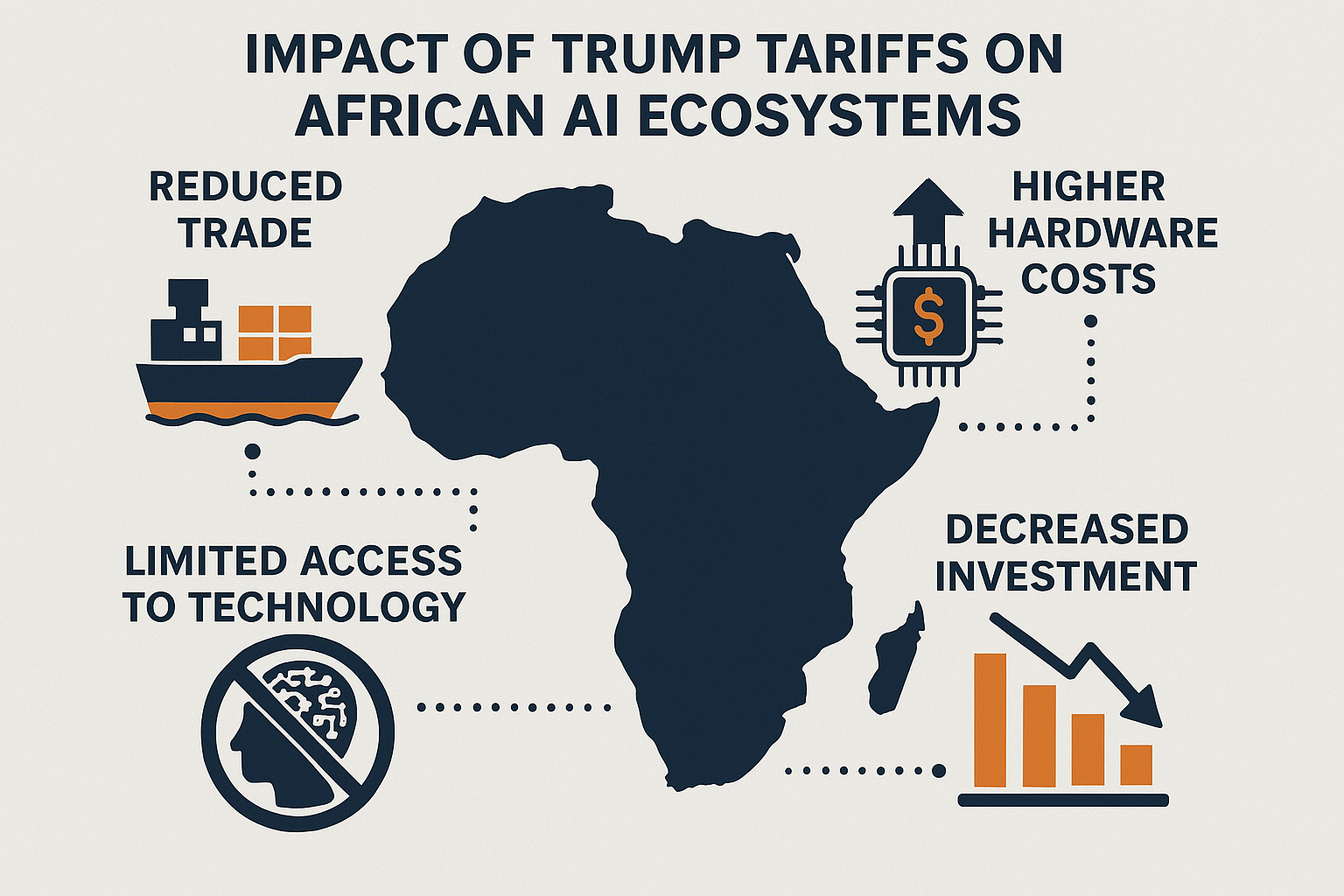Africa’s AI startups, governments, and tech entrepreneurs are facing both challenges and opportunities because of the recent Trump tariffs. Understanding the impacts of these tariffs on Africa’s AI ecosystem is critical if it is to continue growing.
The Immediate Challenge: Rising Costs of AI Hardware
The new U.S tariffs imposed on imported goods from China and Taiwan are likely to raise the cost of essential AI hardware such as Graphics Processing Units and servers, which are already expensive due to the existing import duties in Africa. The advancement in healthcare AI, precision agriculture, and fintech solutions, to name a few, could be slowed down for African AI startups and research institutions. For startups that need scalable AI platforms, costs of cloud computing may go up.
Indirect Effects: Supply Chains & Investment Risks
Apart from affecting hardware supply, tariffs can disrupt worldwide supply networks and prevent foreign investments. A lot of African tech hubs rely on international partnerships and financing, which could decrease as investors become more cautious about trade fluctuations.
Opportunity Alert
Chinese tech companies might move their factories to Africa to avoid U.S. taxes, which could help them share skills with local people and create jobs there. Countries in Africa could also take advantage of this global opportunity to attract foreign direct investment (FDI) in electronics and hardware production.
Turning Crisis into Opportunity: Building AI Self-Reliance
Africa needs to start creating its own tech and AI ecosystem rather than relying on China. Key strategies include:
- Policymakers must enhance intra-African trade in tech components and AI solutions under the AfCFTA (African Continental Free Trade Area).
- It is about creating the local AI infrastructure, including data centers, cloud computing, and broadband access to support local AI innovation.
- In order to foster a strong tech workforce, AI education, incubators, and venture funding will become more popular and widespread
Policy Actions for African Governments
To mitigate risks, policymakers should:
- Negotiate, where possible, with other trade partners about tax breaks for AI tech.
- Fasten the implementing of AfCFTA – African Continental Free Trade Area.
- Encourage the development of artificial intelligence software in South Africa through local manufacturing.
A Way Forward for African AI Tech Startups and Ecosystems
Although Trump’s tariffs have made life difficult for African nations, the US is pushing Africa to become self-reliant in terms of AI development. When we focus on Africa’s local talent, regional cooperation, and intelligent policy, we can use this as a transformative catalyst. There might well be a light at the end of this tunnel we are stuck in. Let’s hope it doesn’t turn out to be the glare of a train coming from the opposite direction.
What’s Next?
Are you an African AI entrepreneur impacted by these tariffs? How is your country adjusting to the new trade landscape? Join the conversation below! #AfricaAI #TechTariffs #AIInnovation


